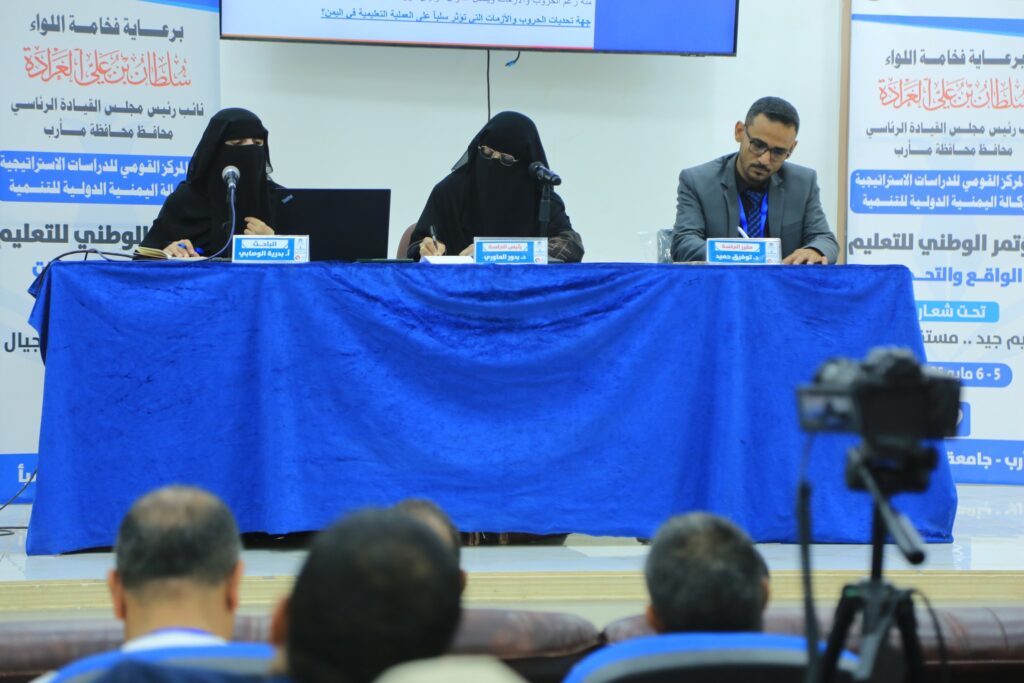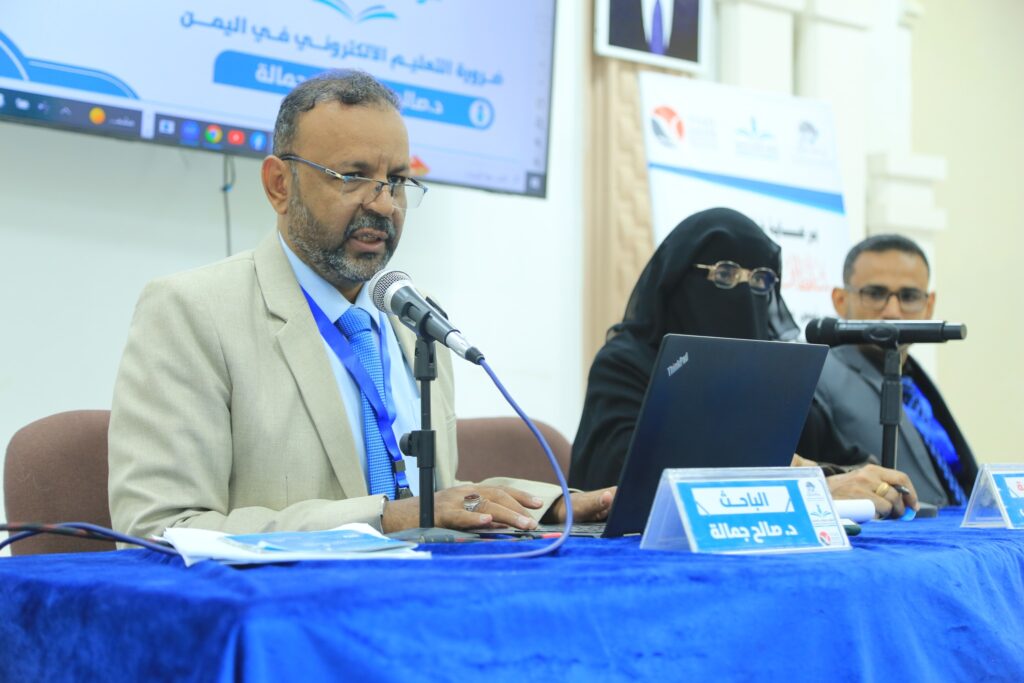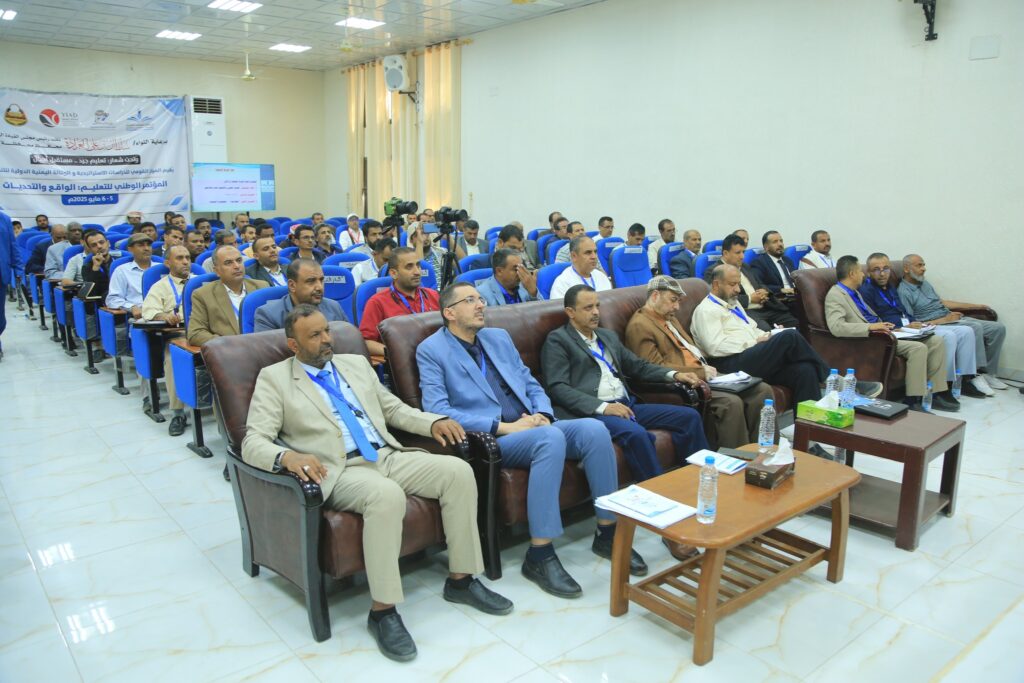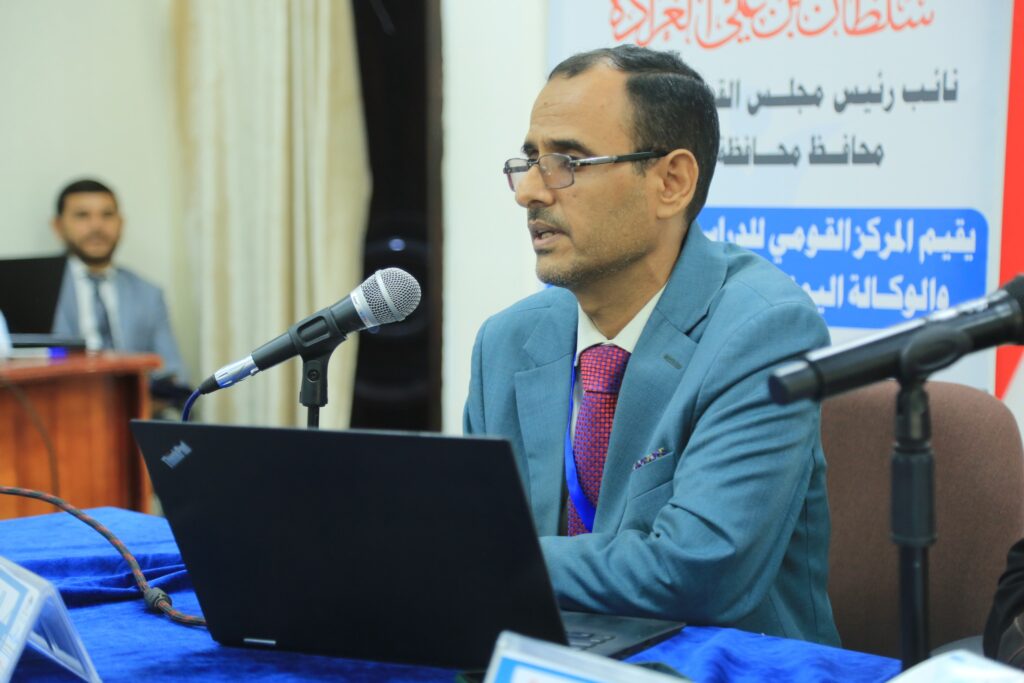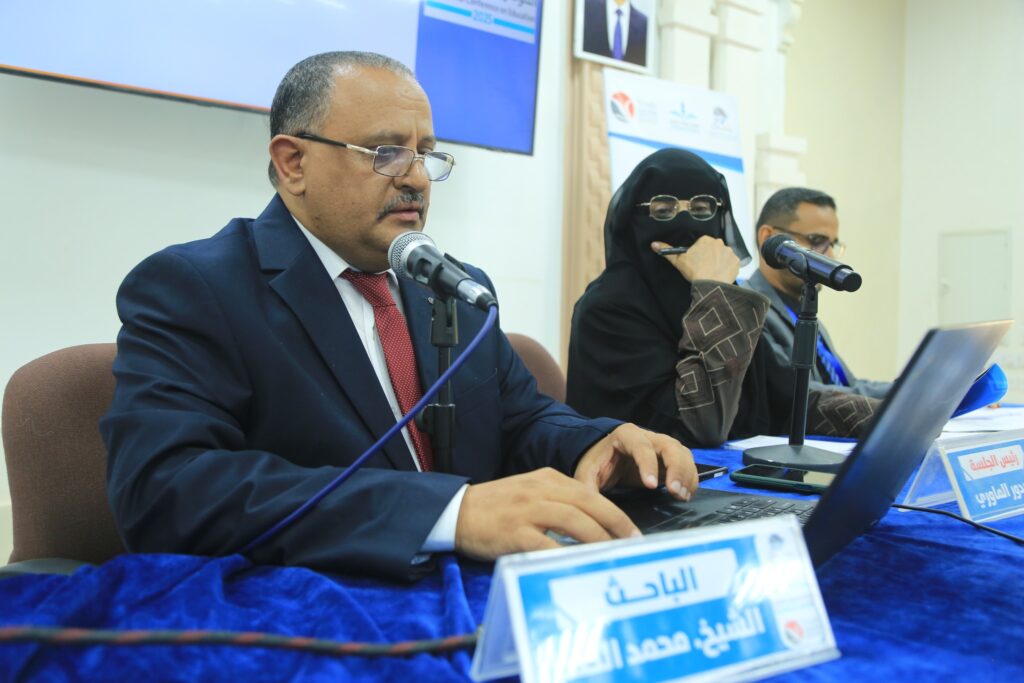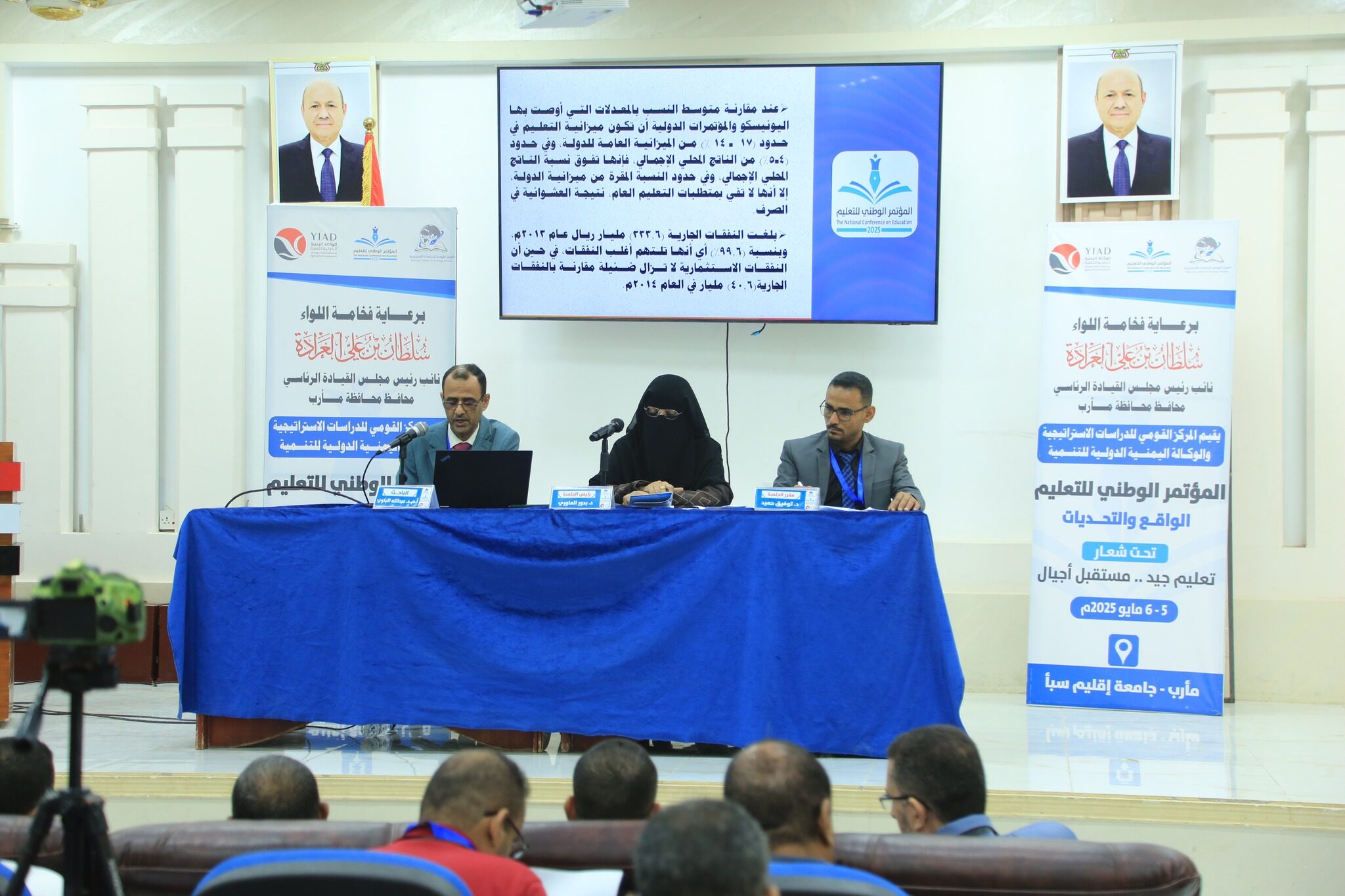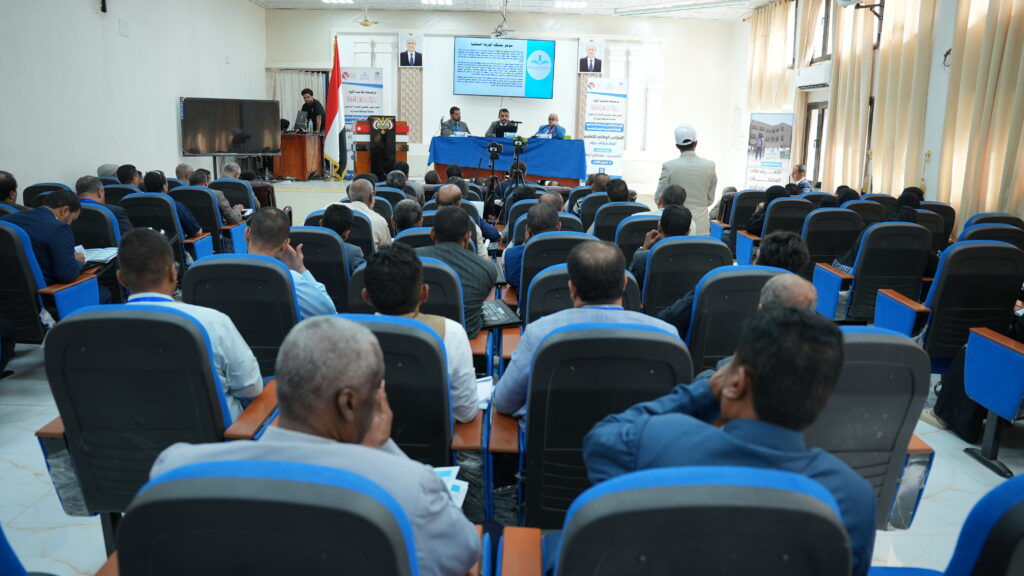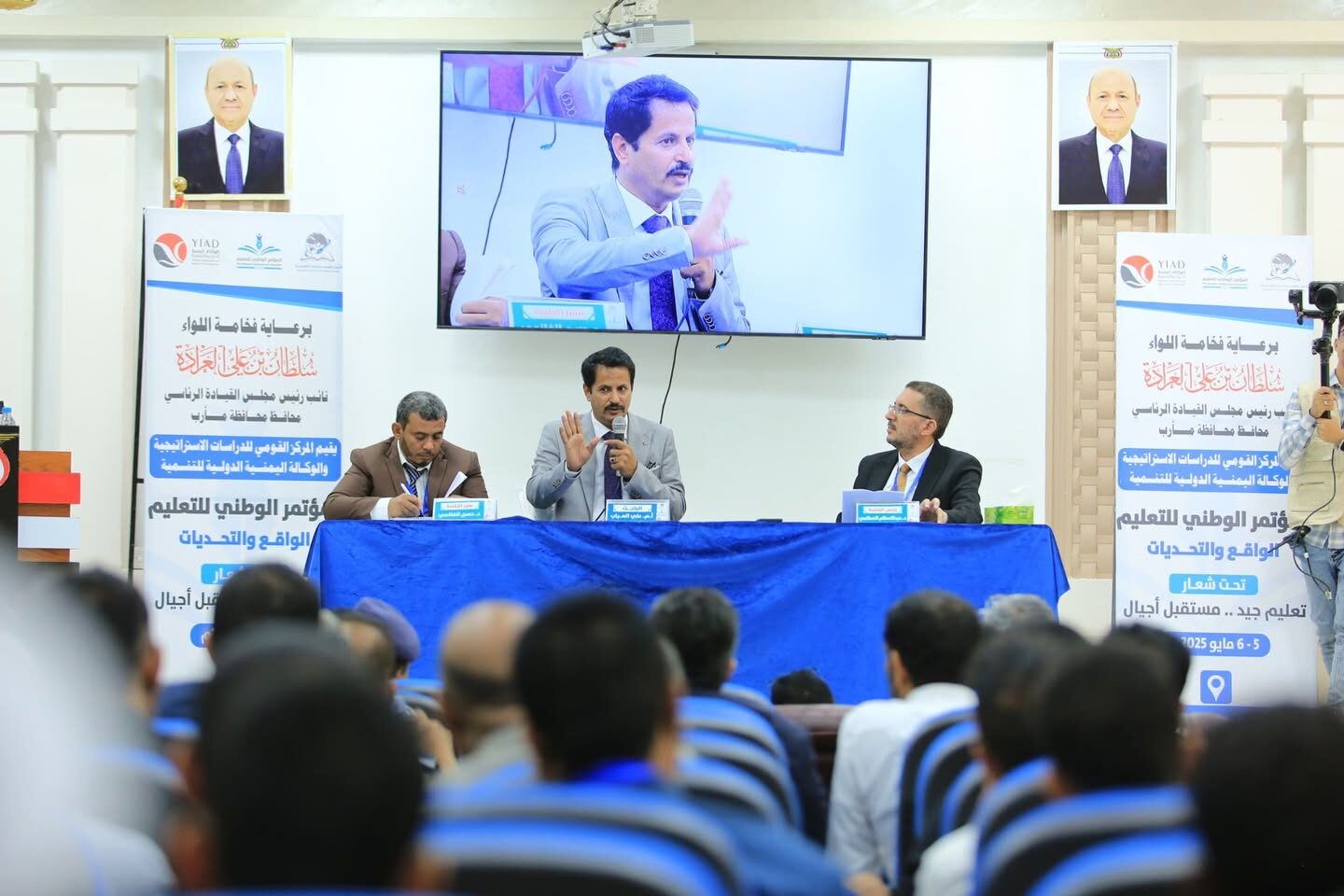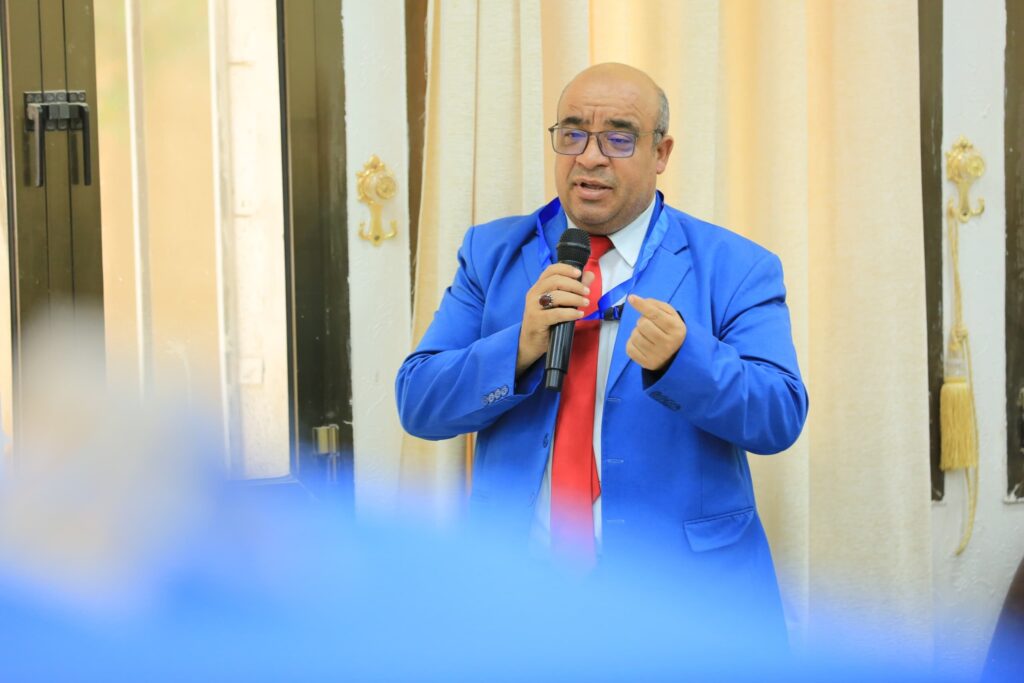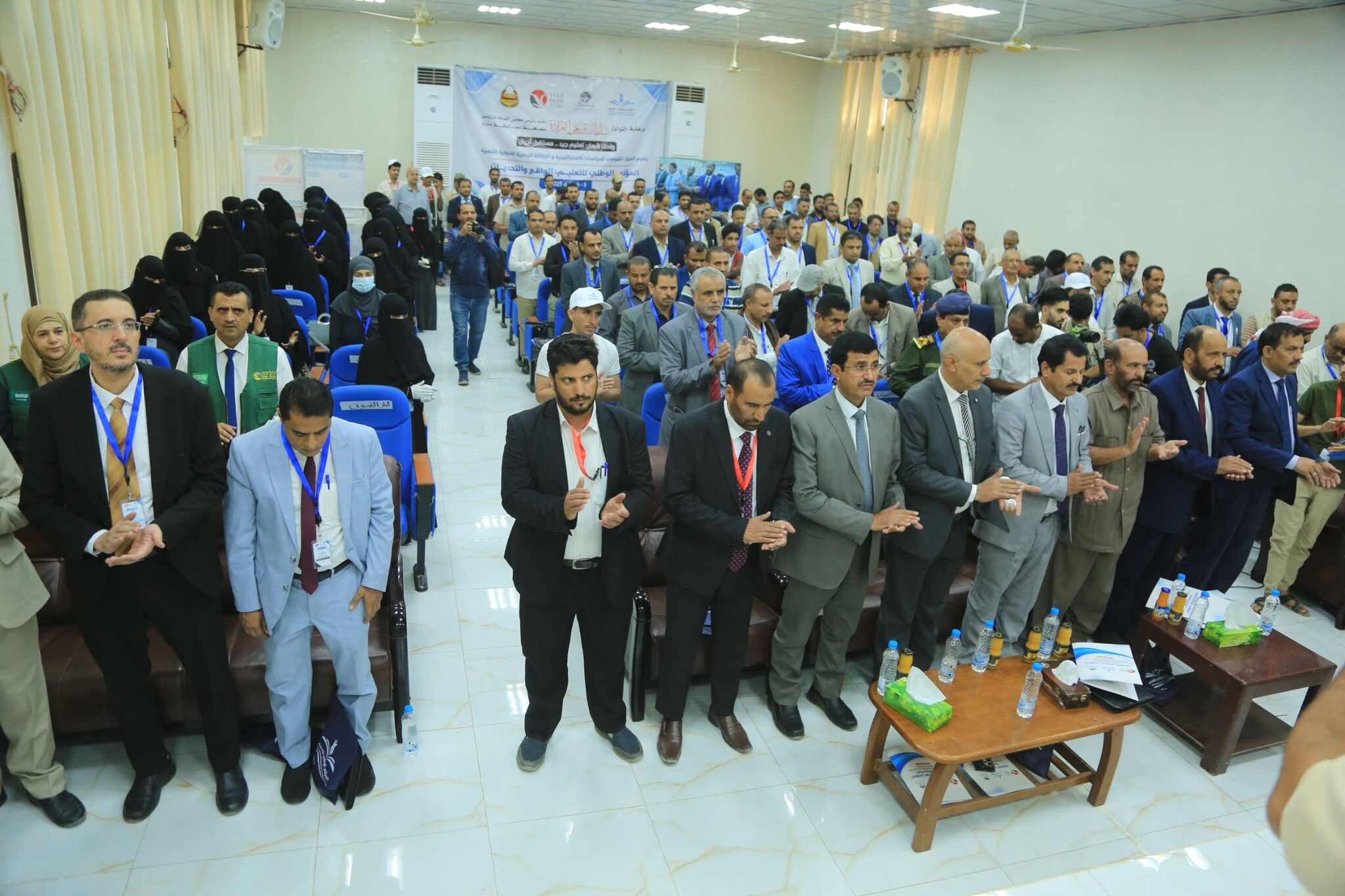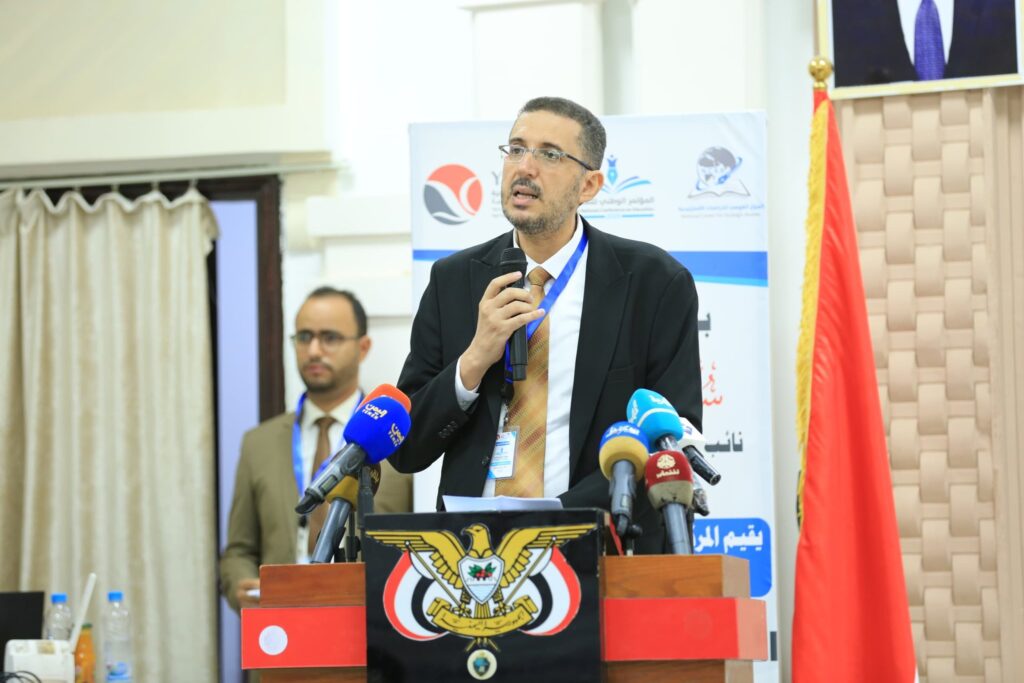Session Four of the National Education Conference in Yemen: Insights and Experiences for Educational Development
As part of the National Education Conference titled “Reality and Challenges,” the fourth session focused on unique insights and experiences aimed at developing education in Yemen amidst the rapid transformations and changes occurring in the sector. The session featured participation from a distinguished group of academics and experts from various institutions.
The session commenced with a paper presented by Mr. Ziyab Saleh Mohsen Al-Dabba, highlighting the importance of academic research and studies in enhancing general and higher education, and their role in formulating effective, evidence-based educational policies.
Ms. Badriya Hamoud Salem Al-Wasabi, an educational supervisor, presented a paper discussing the role of women in educating their children during times of crises and wars, emphasizing the pivotal role of mothers in ensuring the continuity of the educational process in conflict-affected environments.
In the realm of digital education, Engineer Luay Al-Omudi, representative of the Noon Educational Platform in Yemen, showcased the experience of the Noon platform as an innovative model contributing to supporting digital education and expanding access to modern learning resources.
Dr. Saleh Ali Yahya Jamala, Technical Affairs Undersecretary of Al-Jawf Governorate, discussed the significance of e-learning in Yemen, considering it a strategic option to address the current challenges facing the educational system.
Representing Sheikh Mohammed Abdulqadir Al-Khidr, Dr. Abdulkarim Al-Bazli spoke about the role of the private sector in supporting and developing education, emphasizing the need to strengthen community partnerships to provide a sustainable and effective educational environment.
The session concluded with a paper by Associate Professor Dr. Abdullah Haidar Al-Bakri from the University of Saba Region, reviewing the topic of education financing in Yemen, referencing successful Arab and international experiences, and extracting key lessons applicable to the Yemeni context.
The outcomes of the session underscored that developing education requires diversifying roles, enhancing partnerships, and adopting innovative solutions that consider local realities and keep pace with developments, contributing to building a better educational future.
